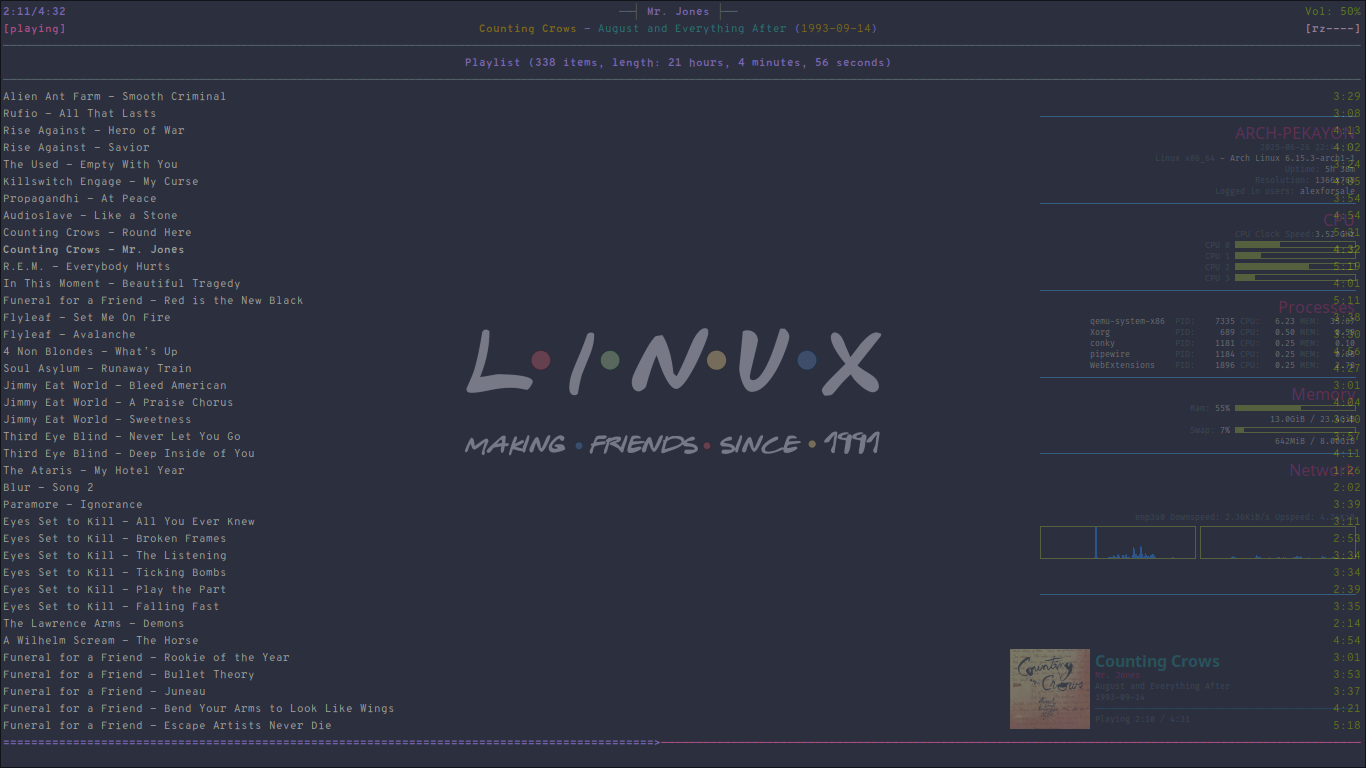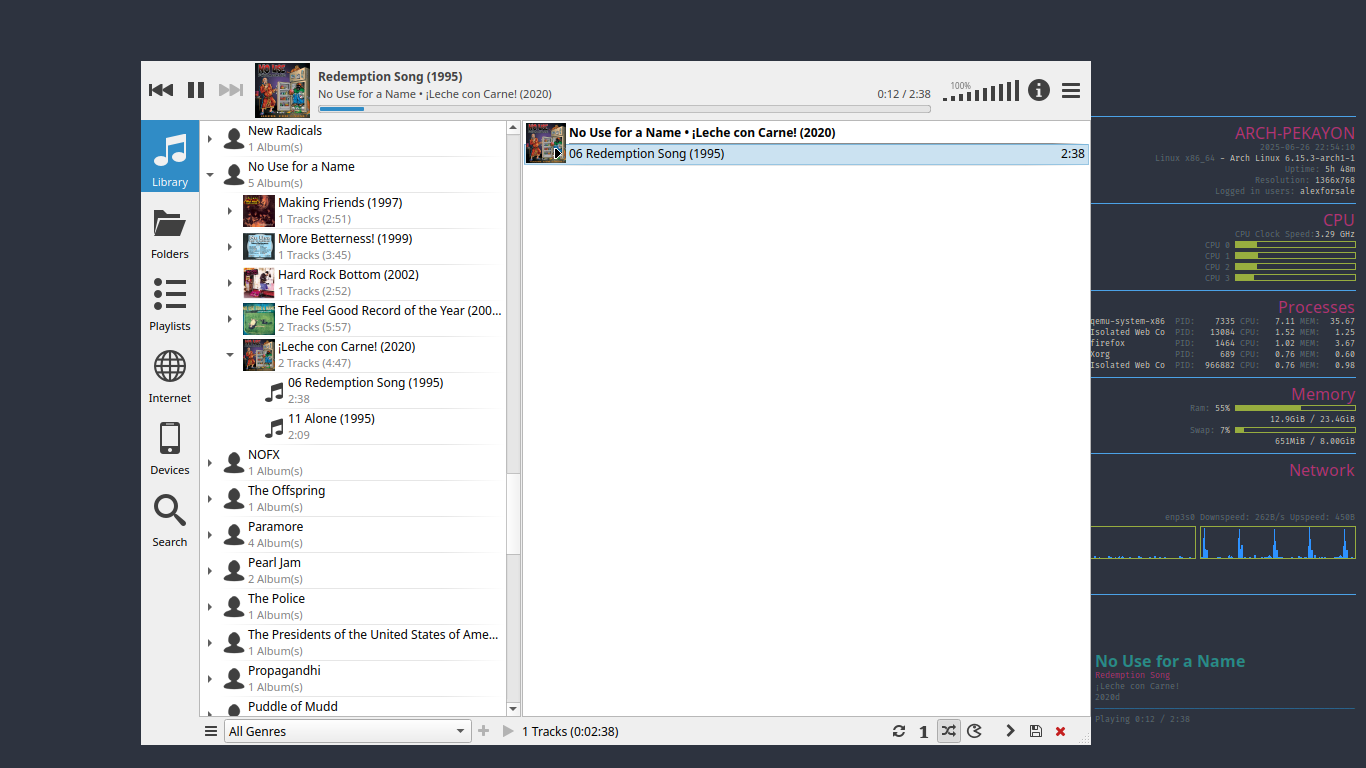Music Player Daemon (MPD) is a flexible, powerful, server-side application for playing music. Through plugins and libraries it can play a variety of sound files while being controlled by its network protocol1.
It plays audio files, organizes playlists and maintains a music database, all while using very few resources. In order to interface with it, a separate client is needed. 2

Figure 1: ncmpcpp, one of many mpd terminal clients.
So why using a server - client model for playing music?
Simplicity
For me, I just want to listen to music. I don’t have a preferred application for listening music, though I really don’t enjoy all the streaming services. Mostly because the songs I liked now is still the same music I liked 10 years ago. I rarely listen to new music (most bands that I liked don’t release new record anymore). Which brings us the next reason.

Figure 2: cantata, another GUI client for mpd.
I only want to listen to music
I don’t want to depend on internet just to fill my ear with music. Even when internet connection is kinda mandatory nowadays, I can proudly (or humbly?) say: “I want some time for myself, and it does not require internet connection”. This is why I store my music locally, just like the old days. I even store my music locally in my phone. Would it be a hassle to synchronize? No, actually, If you use a GUI client for MPD, such as cantata, it has a feature for synch between devices (most player have this functionality). I used syncthing for file synchronization and it works as expected.
It’s about the music, not the music player
Back when I don’t know about MPD, I have to choose various options for music player (which sometimes limited by the desktop environment I’m using at the time, Rhythmbox does not look good on KDE). And when I’m started using window manager instead of a full desktop environment, most of the music player I’ve tried ended up wasting 1 workspace just for listening music.
And MPD does not need a dedicated client to run, by default, it has mpc, which is the commmand line interface for mpd (usually packaged as mpc, but sometimes differently depending on your distribution since there’s already a package named libmpc for arithmetic library).

Figure 3: mpc commands